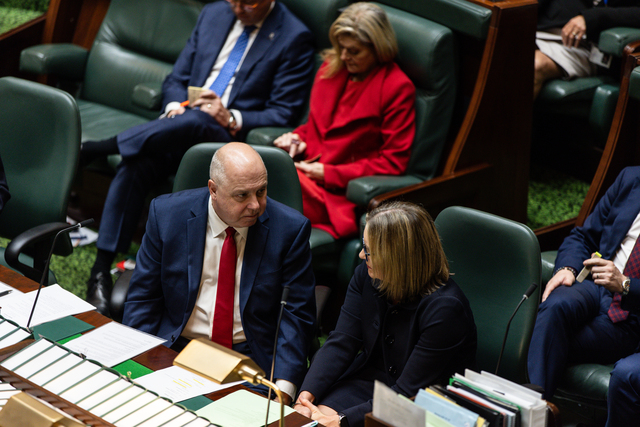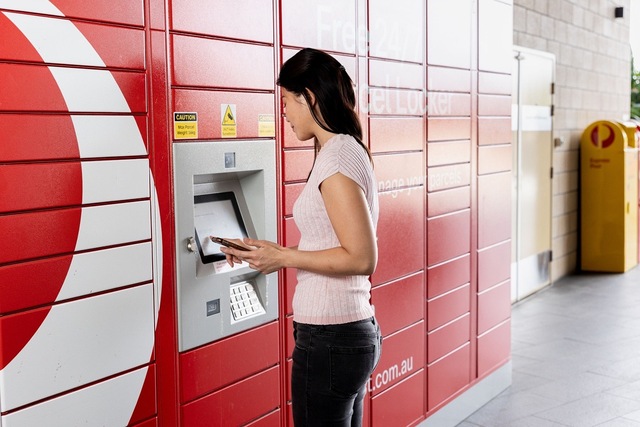It was what some have called a “no frills” 2024/25 State Budget, with the Premier saying it was “sensible and disciplined” at a time of inflationary pressures.
Spotlighting cost-of-living, family violence support, education and frontline services, this was shadowed by increasing debt, a $2.2 billion deficit, the delay or merging of project funding and a detail-lacking breakdown.
Heeding calls to curb infrastructure spending, the Melbourne Airport Rail was delayed by four years, while a $24 billion forecast for infrastructure in 2023/24 will come down to $15.6 billion by 2027/28.
Despite this, Victoria’s net debt is said to hit $187.8 billion by mid-2028, pushing up interest expenses to $9.4 billion annually.
It comes after Victoria’s credit rating took a hit, with Moody’s stripping Victoria of its AAA status in February 2021 and downgrading its rating from AA1 to AA2 in 2022.
S&P Global Ratings also downgraded Victoria’s credit rating two notches in 2020 from AAA to AA, the lowest rating of any Australian state or territory.
Credit rating downgrades make it more expensive for governments to service debt, leaving less money for hospitals, roads and schools.
Making the cost-of-living for families with school aged children more manageable was a focus of the budget, with the government’s headline announcement being a $400, one off payment to cover the cost of uniforms, excursions and supplies.
The $287 million fund is expected to support 700,000 students at government schools and eligible concession card holders from 2025.
“The school saving bonus sits at the heart of our plan to ease cost-of-living pressures for families right across the state,” Premier Jacinta Allan said.
“We won’t let any child miss out on the things that make Victorian education great, so we’re giving families the flexibility to use the School Saving Bonus on the things they need.”
A program worth $6.8 million will assist a further 74,000 students in Prep to Grade 3 undergo vision testing and get prescription glasses.
The Victorian Homebuyer Fund has been extended for one more year at a cost of $700 million, before the federal government sets up a national scheme.
The fund allows more would-be home buyers with a deposit of five per cent to get a foot onto the property ladder in exchange for a portion of its equity.
But there was no change to residential stamp duty despite the treasurer flagging in March that an overhaul could be in the offing.
In 2023, a parliamentary inquiry urged the Victorian government to look into scrapping stamp duty and replacing it with a broad-based land tax.
Treasurer Tim Pallas on Tuesday said it would not be “economically responsible” to make the change as it would essentially wipe off up to $9 billion of revenue each year.
The budget resulted in mixed reviews of the state’s leading organisations, some calling it a “stable budget”, others saying it did not go far enough.
“This is much more of a responsible spend and they’re recognising that it’s time to live within the means so in all, a no frills budget for business,” Victorian Chamber of Commerce and Industry chief executive Paul Guerra said.
“We’ve seen the impact of the failures of the justice system nationally. We could have done something this budget but we haven’t,” Sexual Assault Services Victoria chief executive Katheleen Maltzahn said.
Opposition Leader John Pesutto said the government had not done enough to reduce debt or provide cost-of-living relief.
“We will be spending more on interest than we spend on families,” he said.
Evelyn MP Bridget Vallence echoed her party leader’s comments, calling out the projected debt and said it was “not a balanced budget”.
“This Budget will increase Victoria’s net debt to a staggering $188 billion dollars by 2027, which equates to $67,000 per Victorian household, and will result in an interest bill to service the debt of nearly $26 million per day,” she said.
“Imagine what could be achieved in our community for $26 million per day, and this is just going to pay down interest.”







